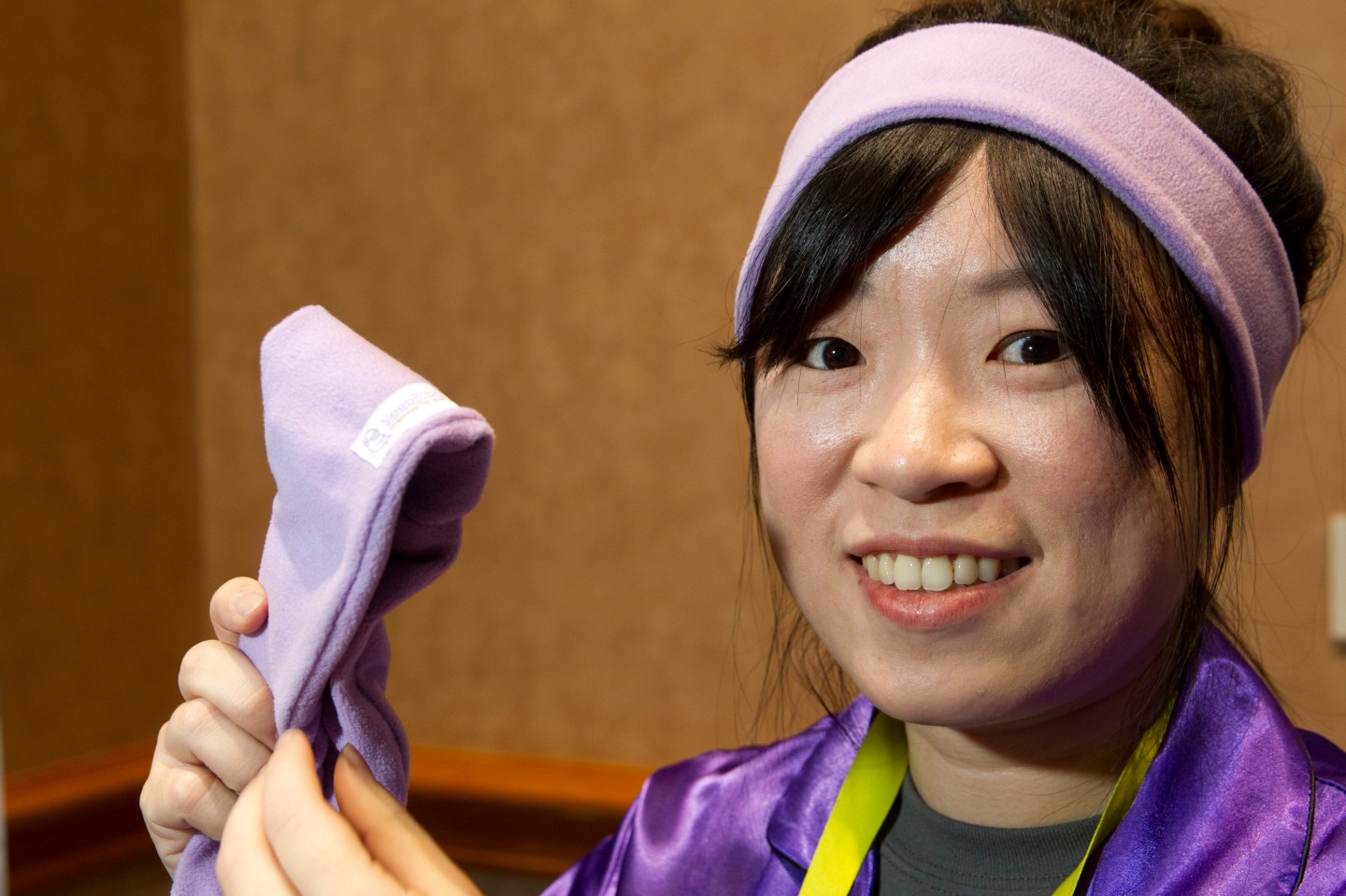Sleep used to be so simple. You put your head on a pillow, closed your eyes and drifted into unconsciousness.
Today, it’s fast becoming a high-tech affair. And at this year’s International CES, there are plenty of companies that want to get into bed with you. Some want to monitor your rest patterns. Others want to help you battle sleep deprivation. And some just want to ensure the room stays comfortable as you doze.
Learn more about new tech trends from Fortune’s video team:
Sleep technology’s modern roots reach back to the 1980s, when Bob and JoAnn Walker founded Select Comfort, with its “sleep number” adjustable mattresses. In Q3 2014, the company reported sales of $323 million, raising its full-year outlook to $1.12 per share.
Recently, dozens, if not hundreds, of devices have hit the market – and experts say that number’s only going to increase.
“As sensors become smaller, cheaper and more prevalent, it has now become feasible to measure sleep in ways that have never been possible before outside of a laboratory,” says David Cloud, CEO of the National Sleep Foundation. “We believe that the bedroom is the next frontier in home technology and the number of products designed for the bedroom will continue to grow – rapidly.”
At this year’s CES, it’s hard to miss the focus on sleep. Most new iterations of wearable fitness bans include some sort of sleep monitoring – if they didn’t already. But the innovations don’t stop there.
Sevenhugs, a European start-up, has introduced the hugOne, a product that purports to monitor the sleep behavior of the whole family – and block electronic transmissions in bedrooms to improve sleep conditions.
Withings, meanwhile, is showing off the Aura, a sleep system that uses a sensor tucked under the mattress to track sleep habits and, per the company, improve the experience of falling asleep and waking up. That last part is done via a light and sound device that monitors the sleep data and adapts to your body clock and picks the best moment to wake you up.
And popular fitness band Jawbone (which says it has logged over 150 million nights of sleep data from its community) has struck a deal with Big Ass Fans to ensure you never get too hot or too cold as you slumber. Owners of the Haiku with SenseMe ceiling fan can have their Jawbone communicate with the fan at night to speed up and slow down throughout the night to ensure maximum comfort.
“Ceiling fans are installed in bedrooms more often than any other room of the house, and they have the ability to dramatically improve one’s sleep if used intelligently,” says Alex Reed, director of consumer products for Big Ass Fans.
There’s actually a lot of money in your bedtime habits. Today, says Cloud, the traditional sleep industry (bedding pillows, etc.) is valued at $20 billion. As the number of sleep tech gadgets increase and become more widely accepted, he says, that figure could double in the next few years.
And while most of today’s sleep technology focuses on monitoring your time in bed, that could be just a launching pad. Just as fitness monitors are now branching into new areas, experts say there’s a lot of room for expansion in this field.
“What happens when we sleep is largely a mystery,” says Cloud. “45% of Americans say that poor or insufficient sleep affected their daily activities at least once in the past seven days. So there’s a huge need for technology that can help people understand and improve their sleep. … The science is there in terms of how to track sleep, and the technology is ready.”
Chris Morris is a freelance writer and editor, specializing in video games, consumer electronics and personal finance.
